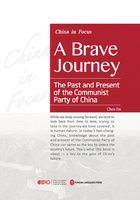
In Search of the Right Ideology
Most of the times when we mention the May Fourth Movement, we also refer to the New Culture Movement around 1919 in addition to the strikes and boycotts led by students. The New Culture Movement led by intellectuals called for the creation of a new Chinese culture centered around democracy and science. The real purpose of this idealogical movement was to find a feasible path towards national revival. Chinese nationalists urged fellow countrymen to support “Mr. Democracy” and “Mr. Science”and look for the right ideology that best fit the national conditions of China.
The May Fourth Movement is often referred to as a great campaign that freed the minds of the Chinese people. It sparked enthusiasm for new ideas and triggered a rational redesign of the ideological foundation of the Chinese society. At that time,it was a trendy thing in the circle of intellectuals to talk about ideologies. A lot of them ended in “ism”.
Before the May Fourth Movement, there were no more than 10 journals trumpeting new ideologies. Within just half a year following the May Fourth Movement, about 400 vernacular periodicals and about 350 weekly newspapers popped up across the country, all of which declared their mission was to spread new ideas and emancipate the Chinese people from outdated social values. Mao Zedong founded Xiangjiang Review in Hunan. He saw the spread of these new ideologies as a fiery,unconquerable flood that swept off everything that was outdated.Almost all young people who later became leaders of the CPC established their own beliefs amid this whirlpool of ideological struggle.
Term
Democracy and Science
Democracy and Science advocated by Chinese intellectuals during the New Culture Movement have two levels of meaning.Democracy refers to (1) the spirit of democracy as well as democratic values and ideas such as civil liberties, personal freedoms, and human rights, and (2) a democratic political system.Science refers to (1) scientific thinking, the scientific spirit, and scientific methodology,which was the primary meaning of science promoted during the New Culture Movement;and (2) a particular area of science and technology and knowledge of science.
Although people often say all roads lead to Rome, not all ideologies could help Chinese nationalist revive China. The most popular ideology among Chinese intellectuals at the time was anarchism. Many of them talked about anarchism and socialism as if they were the same thing.
Mao Zedong made a comparison of the most popular ideologies spreading in the circle of Chinese intellectuals.According to Mao, those advocating social policy reform failed to give the Chinese people something they could really get their teeth into; anarchists repudiated authority and hierarchy;the ideals of moderate communists were only theoretically plausible; only radical communism that pushed for the dictatorship of the proletariat had foreseeable consequences and best fit the country.
The popularity of Marxism in China in part stemmed from the success of the October Revolution in Russia. Li Dazhao was among the first to foresee the huge effects of the October Revolution on China. Li was a like-minded friend of Chen Duxiu. Unlike Chen Duxiu who was known for unflinching bravery, Li was, according to the well-known Chinese pundit Lu Xun, “a gentle and down-to-earth man who has the characteristics of an intellectual, a government official, and a businessman.” His articles and speeches on the October Revolution and Marxism inspired a group of outstanding young communists.
For advocates of Marxism in China, the October Revolution engendered two important revelations.
One revelation was that the national independence movement and the working class struggle should be aligned with each other. Li Dazhao said in 1922, “The slogans shouted out by revolutionaries during the October Revolution–Subvert capitalism! Subvert imperialism!–are reverberating in my mind all day. They contain so much solemnity and intensity.”
The other revelation was about the power of the working class. No matter whether it is an anti-imperialist or anti-feudal revolution, the support of the masses is the key to its success.Without it, any revolution or national independence movement will be doomed to fail. This revelation was the primary reason why the CPC called for the unification of intellectuals, workers and peasants into a front.
Influenced by these two revelations, a group of Chinese intellectuals began to see Marxism and socialism which had their roots in Western capitalist societies as a way out of the mess the country was in. Compared to Marxism and socialism,other ideologies that had once been very popular in the circle of Chinese intellectuals were lacking in pragmatism and feasibility.For example, although the idea of pragmatic evolutionary change advocated by Hu Shi did touch many specific social problems, it failed to generate a sustained driving force for social progress. Nor was it able to steer China towards a much better future.
Event
The October Revolution in Russia
The October Revolution was a socialist revolution instituted by Russian workers and peasants under the leadership of the Bolshevik Party. It took place on October 25, 1917 according to the Julian calendar that was followed by Russia at the time (or November 7,1917 according the Gregorian calendar)–hence the name. On November 7, 1917, the Bolshevik armed forces led by Vladimir Ilyich Lenin and Leon Trotsky stormed the Winter Palace in St. Petersburg and overthrew the provisional government that represented the interests of the Russian bourgeoisie. The revolution led to the establishment of the Soviet regime. The success of the October Revolution marked a new epoch in human history and provided a “general schema” for proletarian revolutions and anticolonial movements across the world.
The conclusion is obvious: Marxism and socialism were rational choices of Chinese nationalists about 100 years ago based on the national conditions of China. Just as Mao Zedong said at the time, Chinese nationalists turned to Marxism and socialism because “there is no other way out.”